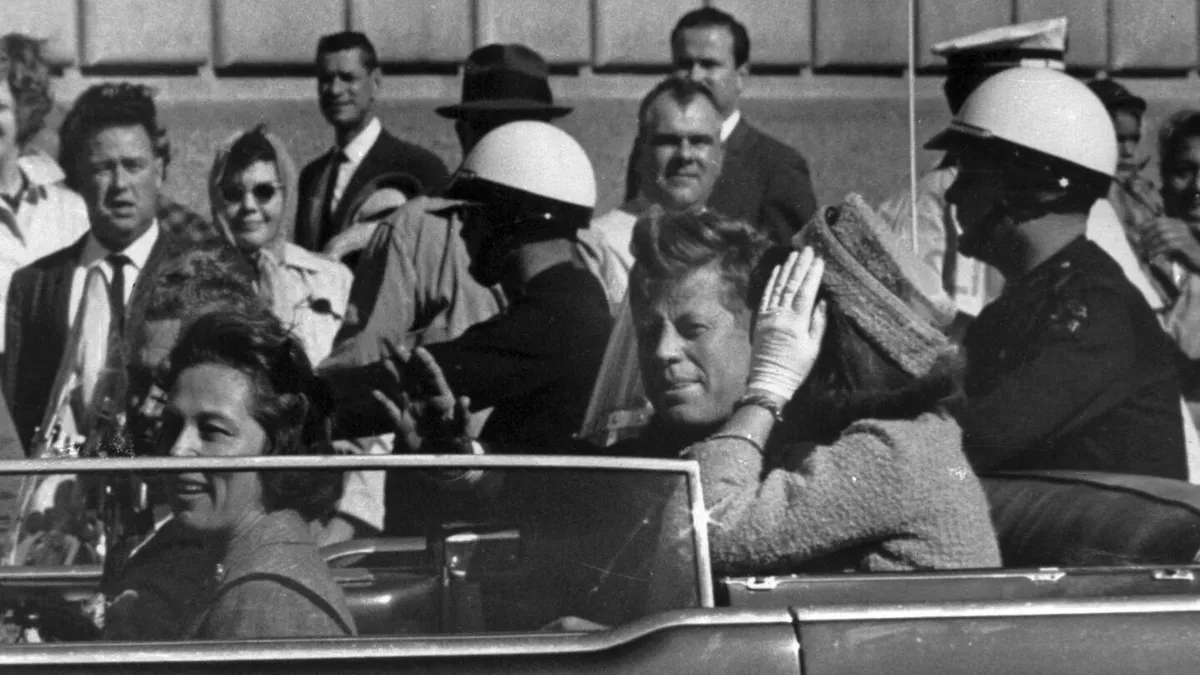
A significant revelation has emerged regarding President John F. Kennedy and the CIA following the recent release of documents by the U.S. National Archives and Records Administration. Among these documents is a memo from Special Assistant Arthur Schlesinger Jr., who warned Kennedy about the growing power of the CIA in the aftermath of the failed Bay of Pigs invasion in Cuba in 1961. Schlesinger proposed that the State Department should take control of all clandestine activities, suggesting a breakup of the CIA, an agency he believed had become too influential.
The newly publicized material includes a page from Schlesinger’s 15-page memo, which outlines his concerns regarding the CIA's reach, stating that 47% of political officers in U.S. embassies were under CIA control. This information has reignited discussions among scholars and historians about the relationship between Kennedy and the CIA, particularly in light of the tragic events surrounding Kennedy's assassination in Dallas on November 22, 1963. Some experts argue that the document suggests a significant mistrust that may have influenced the CIA's priorities regarding Kennedy’s security.
The release of the 63,000 pages of documents has brought renewed attention to long-standing conspiracy theories surrounding JFK's assassination. While many historians, including Gerald Posner, author of “Case Closed,” maintain that Lee Harvey Oswald acted alone, others, such as Jefferson Morley, editor of the JFK Facts blog, believe that the newly available material is crucial to understanding the complexities of the case.
Morley, who serves as vice president of the Mary Ferrell Foundation, a repository for files related to the assassination, noted that despite the substantial volume of material released, thousands of files remain undisclosed, including some recently found by the FBI. This ongoing mystery continues to fuel public skepticism regarding the official narrative of Kennedy's assassination.
The Bay of Pigs invasion, which took place in April 1961, was intended to overthrow Cuban leader Fidel Castro but ended in failure, casting a shadow over Kennedy’s presidency. The fallout led to Schlesinger's memo, dated June 30, 1961, just a few months after the failed operation. In his memo, Schlesinger urged that all covert operations should be approved by the State Department rather than the CIA unilaterally deciding on actions that often appeared as completed tasks.
According to former U.S. ambassador Ronald Neumann, the dynamics within American diplomacy have evolved significantly since Kennedy's time. He explained that most American diplomats today are not affiliated with the CIA, and ambassadors do not automatically defer to CIA directives. However, during times when covert operations were prevalent, the relationship between diplomatic missions and the CIA was markedly different.
Schlesinger's memo concluded with a previously redacted proposal that suggested giving control of covert activities to the State Department and splitting the CIA into two distinct agencies. This proposal, seen as a response to Kennedy's frustration over the Bay of Pigs, was never implemented. Larry Sabato, director of the University of Virginia Center for Politics, posited that Kennedy needed the CIA's capabilities during the Cold War, and a significant reorganization could have hampered essential intelligence operations.
Sabato emphasized that many covert operations during Kennedy's administration targeted Fidel Castro, illustrating the complex interplay between national security and political maneuvering. Similarly, Timothy Naftali, an adjunct professor at Columbia University, argued against the notion that tensions between Kennedy and the CIA persisted until his assassination, suggesting instead that Kennedy maintained considerable control over the intelligence community.
The recent release of documents concerning President Kennedy and the CIA has opened new avenues for understanding the political landscape of the early 1960s. As researchers continue to analyze these materials, the interplay between covert operations, national security, and the tragic events surrounding JFK's assassination remains a focal point of historical inquiry.